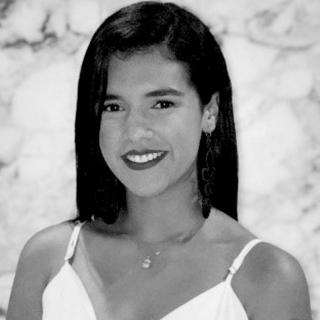
Daniel Ortega, current president of Nicaragua. Photo: EFE
Five things wrong with Nicaragua's elections
Elections will be held in Nicaragua during the first week of November, but the situation has been more complicated than at previous times.
Nicaragua will soon hold general elections for president, in which the current president Daniel Ortega will seek his third reelection and his fifth presidential term. In addition, 90 deputies of the National Assembly of Nicaragua and 20 deputies of the Central American Parliament will be elected.
According to the official calendar of the Supreme Electoral Council published by the National Assembly of Nicaragua, the electoral campaigns of the registered candidates began on Aug. 21 and must conclude on Nov. 3 for the elections to be held on Sunday, Nov. 7. Provisional results are expected to be ready on Nov. 15.
Amid the elections, many cases have set off alarms about a possible fraudulent election. Here is what is known so far.
Minimal candidates
On Aug. 2, seven candidates for president and vice president were registered at the Supreme Electoral Council. However, the list was reduced shortly after to six, after the CxL party had its legal status withdrawn.
The candidates for the Citizens for Liberty (CxL) party were former counterrevolutionary commander Óscar Sobalvarro and former Miss Nicaragua 2017 Berenice Quezada. Quezada was accused by the Public Prosecutor's Office of "provoking and conspiring to commit terrorist acts."
The remaining six candidates are current President Daniel Ortega for the United Alliance Nicaragua Triumphs, Marcelo De Jesús Montiel Fernández for the Nicaraguan Liberal Alliance Party, Deputy Mauricio Orúe Vásquez for the Independent Liberal Party, Deputy Walter Espinoza for the Constitutionalist Liberal Party, Pastor Guillermo Osorno for Camino Cristiano Nicaragüense and Gerson Gutiérrez Gasparín for the Alliance for the Republic Party.
Likewise, Cristiana Chamorro, the presidential hopeful most likely to defeat Ortega, was arrested for "treason" and alleged money laundering and has been under house arrest since last June, and was disqualified from participating in the elections at the request of the Public Prosecutor's Office.
Opposition in the country
At least 39 opposition politicians and activists have been arrested by the Nicaraguan National Police, among them seven presidential hopefuls who could not register for these elections.
Three of the potential candidates have been officially accused of committing the crime of "conspiracy to undermine national sovereignty," accusations that have been rejected by them, their lawyers and families.
Among these are Arturo Cruz, Félix Maradiaga, Noel José Vidaurre Argüello, Medardo Mairena Sequeira, Miguel Mora Barberena and Juan Sebastián Chamorro.
All the candidates have rejected the charges against them.
"Fake Elections”
According to Josep Borrell, High Representative for Foreign Policy of the European Union, the Nicaraguan elections are "completely a fake" and no "legitimate result" can be expected from them.
The Spanish diplomat said that the situation in the Central American country is "one of the most serious there is at present" in the whole continent.
"I am more concerned about Nicaragua, where there are elections that are a complete fake. We are not going to send any electoral observation mission there because Mr. Ortega has already imprisoned all political opponents running in the elections. We cannot expect this process to produce a legitimate result that we can consider, quite the contrary," said Borrell in a meeting with foreign media in Peru.
United States against
U.S. officials told Reuters that the U.S. government is working with international partners on new sanctions that could be imposed in response to the Nov. 7 elections in Nicaragua.
The White House has also initiated a review of Nicaragua's participation in a free trade agreement with Central America and has already halted support for any "trade capacity building" activities deemed to benefit the Ortega regime, a senior State Department official said on condition of anonymity.
The Biden administration, building on sanctions imposed by his predecessor Donald Trump, has implemented punitive financial measures and travel bans on dozens of Nicaraguan officials, including members of the Ortega family, over the Central American government's crackdown ahead of the election.
Facebook against fake news
Meta, the company that owns Facebook and Instagram, announced the removal of more than 1,000 fake accounts in Nicaragua that it says were part of a government disinformation campaign.
Meta said in a report that those running the accounts included personnel from the telecommunications regulator and the Supreme Court.
The company said that in addition to the 937 fake accounts on the social network, it also deleted 140 pages, 24 groups and 363 Instagram accounts, all belonging to the same network.
Ben Nimmo, Meta's Intelligence Leader for Influence Operations, told the AFP agency that the accounts were controlled by the government of Ortega and the ruling Sandinista National Liberation Front (FSLN) party.
Media censorship
Amid the political situation in the country, many media outlets have had to close their doors and stopped publishing their ideas so as not to get into trouble with Ortega's regime.
The president of the Inter-American Commission on Human Rights (IACHR), Antonia Urrejola, denounced that nothing is normal in Nicaragua, that there are still more than 100 political prisoners and that the dictatorship has kept its citizens under a police state since the citizen protests that began in April 2018.
"The situation has been that they have reduced the spaces for public opinion and the legal status of civil rights organizations has been canceled, independent media have lost their buildings, have been censored,many people have gone into exile and since the beginning of the crisis there were many students criminalized and taken to prison, who were later being released by various groups. The repression continues, the lack of freedom of expression continues, the lack of freedom to carry out any demonstration in the streets continues," said Urrejola during his participation in the National Endowment for Democracy (NED) award ceremony last October.










LEAVE A COMMENT: